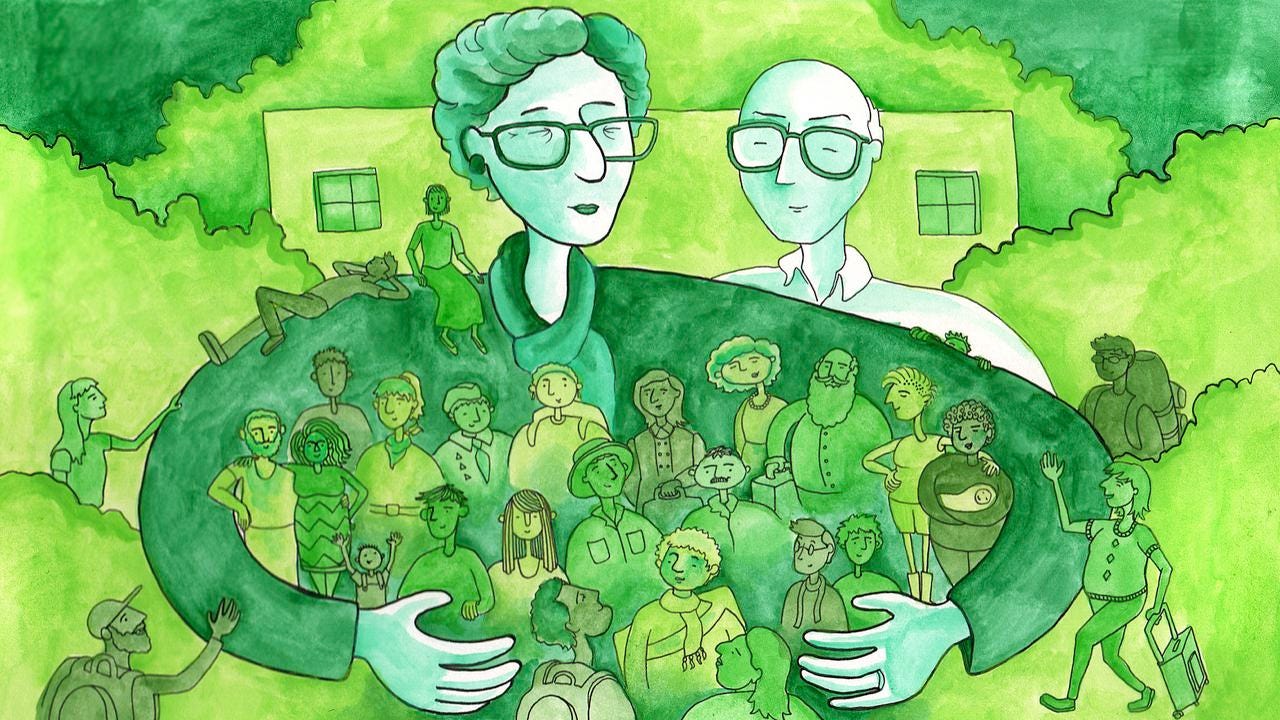Antonio and Maria’s Happy Home Invasion
Long before “the sharing economy” took the Internet by storm, an ailing German adventurer and a benevolent Spanish couple sparked a forty-year experiment in ad-hoc hospitality.
In the midst of last year’s oppressive Spanish summer, as heat shimmered across sidewalks baked bare of pedestrians, I found myself standing at the nondescript door of a house in suburban Madrid. I rang the buzzer and was ushered into a book-lined home where I could stay for free — for a week, for a month, even for a whole year if I chose.
Keep reading with a 7-day free trial
Subscribe to Narratively to keep reading this post and get 7 days of free access to the full post archives.




